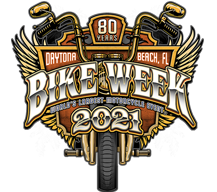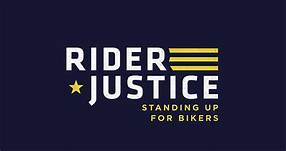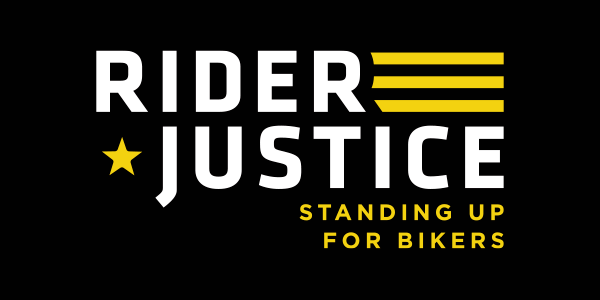
Personal injury attorneys have a bad rap. That is no surprise to anyone. The slur “ambulance chaser” is applied to the entire profession because, well, it was earned. There was a time when personal injury attorneys showed up at disaster sites of all kinds and handed out their business cards, hunting for injured clients. I’ve never actually heard of an attorney chasing an ambulance, but I still think the profession has earned the term.
In my estimation, too many people pursue this field of law for pure financial gain. Luckily, there are some of us who pursue it as a calling, our vocation. But how can you tell the difference?
I have written extensively about the legal shops that I call “personal injury mills.” These are the personal injury firms that chew clients up and spit them out, usually with settlements well below what they could have (should have) received. The problem can be especially bad for motorcycle crash victims who often sustain significant injuries, are facing police bias just because they were on a motorcycle, are dealing with hospital bills and big medical decisions, and don’t have time to “babysit” motorcycle attorneys who aren’t doing their job properly.
So, I am going to share the top 4 ways to know if a motorcycle accident lawyer is an ambulance chaser. I’ll share the list and then I’ll take a deeper dive into each of the reasons I give.
Your personal injury attorney might be an ambulance chaser if he/she…
- Only speaks to you once and hands your case off to a paralegal, never or rarely speaking with you again.
- Charges you fees for anything at all before your case settles.
- Talks about settling before understanding your injuries completely. (Or tells you to stop medical treatment so that he/she can settle!)
- Tells you what your case is worth before considering all the sources of compensation available to you.
Now, let me break these down so that you understand why they are red flags.
1. Only speaks to you once and hands your case off to a paralegal, never or rarely speaking with you again.

Most ambulance chasers are playing a wicked numbers game. They need a very high number of motorcycle crash cases to pay for their marketing, so they churn clients in the door and lead them to settlement as quickly as possible. In their haste, these attorneys will generally do a very good dog-and-pony show prior to a prospect signing up – meeting with them, returning calls, etc. – but as soon as the client (read: injured victim of a motorcycle crash who probably needs some significant legal help) signs on the dotted line, their case is taken over by a paralegal.
While paralegals are fantastic supports to attorneys, they are not attorneys. If an attorney is not 100% in charge of your case, then you will not receive the representation you need. If only paralegals return your calls, it’s a good sign that the attorney has no idea who you are.
2. Charges you fees for anything at all before your case settles.

The entire personal injury field works on a contingency basis, which means we do not get paid unless you get paid. We must incur all of the costs to research your case, hire the experts to study the scene of the motorcycle accident, work with hospitals and doctors to reduce your medical bills, and (this is perhaps the most important) be willing to absorb all those charges for as long as your treatment takes. If a motorcycle crash victim is seriously injured, that could be years.
I have heard of attorneys charging their clients for everything from expert witness testimonies to copier paper while they are still working on the case.
If your lawyer is trying to charge you for anything at all prior to your case’s completion, you are probably dealing with an ambulance chaser.
3. Talks about settling before understanding your injuries completely. (Or tells you to stop medical treatment so that he/she can settle!)
Many personal injury attorneys would rather “take the bird in hand” than wait for the two in the bush. By this, I mean that they would rather settle your case for less and do it quickly than wait (perhaps years) for a potentially higher settlement.
However, motorcycle crash victims often need a lot of time to recover. In Colorado, a case cannot be closed until a victim ceases treatment, thereby putting an end to medical bills. Ambulance chasers would rather convince their clients that they are “fine” than take time to make sure that their recovery is truly headed in the right direction.
Ambulance chasers need the cash now, and they will get it from your case at your expense by encouraging you to quit medical treatment and settle early.
4. Tells you what your case is worth before considering all the sources of compensation available to you.

One of the most time-intensive (and rewarding!) aspects of being a motorcycle accident attorney is in taking a deep dive into the motorcycle victim’s insurance, the at-fault driver’s insurance, the many other “pots” that may be available for compensation, and putting together a complete picture for each client of what their case may be worth. This takes time. And it also takes a level of passion that you will only find in an attorney who does this work as a vocation.
I have worked with clients who have been told by other attorneys (before they even signed up, let alone researched the accident) that they can only get $25,000 from the at-fault driver’s insurance company. Often, my deeper research reveals additional details, like perhaps the driver was in his mom’s car and her insurance is available, too. Or maybe the at-fault driver was in a rental, opening up another “pot” for compensation. You need an attorney who is willing to take the time (and who has the time) to investigate every aspect of your crash.
If you have any questions about your motorcycle crash, don’t hesitate to contact me today! You can call or text me at 303-388-5304.
Scott O’Sullivan is the founder of Rider Justice and the O’Sullivan Law Firm.






